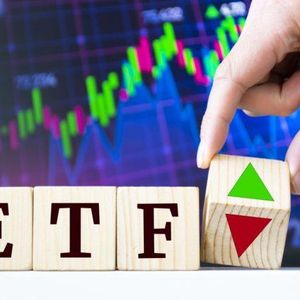Big news shaking up the world where finance meets forecasting! The U.S. Commodity Futures Trading Commission ( CFTC ) has made a significant move by withdrawing its appeal against prediction market platform Kalshi. This decision is a game-changer, effectively clearing a major hurdle and allowing Kalshi to proceed with offering contracts based on political events. If you’re following the intersection of digital platforms, finance, and regulation, this development is definitely worth your attention. What Led to the CFTC and Kalshi Showdown? The story began when Kalshi, a regulated prediction market exchange, sought approval from the CFTC to list contracts related to political outcomes. Think questions like “Will Party A win the popular vote in State B?” or “Will Candidate C be elected?” Kalshi’s argument is that these contracts function as economic hedges or forecasts, providing valuable information and trading opportunities, similar to how markets predict interest rate changes or commodity prices. However, the CFTC initially rejected these proposals, citing concerns that such contracts could be deemed “contrary to the public interest” or constitute illegal gambling under existing interpretations of commodity law. This rejection wasn’t accepted quietly by Kalshi. Believing their proposed markets were legitimate and fell within the regulatory framework for derivatives, Kalshi took the bold step of suing the commission in 2023. The lawsuit challenged the CFTC’s rejection, arguing it was arbitrary and capricious. Kalshi maintained that their platform provided a structured, regulated environment for predicting future events, distinct from traditional betting or gambling. This legal battle put a spotlight on the evolving nature of prediction markets and how they fit into established financial regulations in the United States. The Significance of the CFTC’s Withdrawal Fast forward to today, the CFTC has withdrawn its appeal against Kalshi. According to reports, both parties agreed to drop the case and cover their own legal costs. This withdrawal isn’t just a procedural step; it marks a substantial victory for Kalshi and the broader prediction markets industry. Here’s why this is a big deal: Path Cleared for Political Betting: The immediate effect is that Kalshi is now free to pursue offering contracts on political events, which was the core issue of the lawsuit. This opens up a new category of markets for their users. Regulatory Signal: The withdrawal, especially under the leadership of Acting Chair Caroline Pham, suggests a potential shift or at least a nuanced approach within the CFTC towards prediction markets. It signals a possible willingness to reconsider or allow certain types of event contracts that were previously viewed with skepticism. Precedent Setting: While not a court ruling on the merits, the CFTC backing down in the face of a legal challenge from a regulated entity like Kalshi could set a precedent or at least embolden other platforms or exchanges looking to list similar event contracts. Validation for Kalshi: For Kalshi, this is a major vindication of their legal challenge and their business model. They stood up to the regulator and achieved their goal of getting the initial rejection overturned implicitly through the withdrawal. What Does This Mean for Political Betting and Prediction Markets? The CFTC’s decision has direct implications for the landscape of political betting and prediction markets in the US . Until now, participating in prediction markets related to politics for US residents often involved using offshore platforms, which come with significant risks, including lack of regulation and potential for fraud. Kalshi, being a regulated US entity, offers a different environment. Here’s a look at the potential impacts: Increased Accessibility: Regulated platforms can potentially attract a wider range of users who might be hesitant to use unregulated offshore sites. Enhanced Transparency and Security: Operating under CFTC oversight means adherence to rules regarding market integrity, customer protection, and financial stability, offering users more confidence. More Accurate Forecasting? Proponents argue that liquid prediction markets can aggregate dispersed information and provide more accurate forecasts than traditional polling or expert opinions. Allowing more topics, like politics, could test this hypothesis further. Innovation in Event Contracts: This could pave the way for other types of event contracts on regulated platforms, expanding the scope of what can be traded beyond traditional financial assets. However, challenges remain. The line between a legitimate prediction market contract and illegal gambling can still be blurry in practice and subject to interpretation. Public perception and ethical considerations around betting on sensitive political events will also continue to be discussed. The Regulatory Environment: A New Approach? The timing of the withdrawal, occurring under Acting Chair Caroline Pham, suggests it aligns with her stated approach to regulation. While the article source mentions her leadership in the dismissal, understanding her broader perspective is key. Generally, there’s been a growing conversation within regulatory bodies about how to handle novel financial products and technologies, including those related to crypto and event markets. This specific outcome might indicate a willingness within the CFTC to: Engage with regulated entities bringing forward innovative proposals. Perhaps favor allowing markets unless there’s a clear and compelling reason based on market integrity or public interest concerns, rather than a blanket prohibition. Address regulatory questions through dialogue or reconsiderations, potentially avoiding protracted legal battles where possible. This doesn’t mean the door is wide open for everything. Regulatory bodies like the CFTC still have the mandate to protect market integrity and the public. But the Kalshi outcome suggests that regulated platforms proposing well-structured event contracts might find a more receptive audience or at least a fairer fight than before. What Does This Mean for Users and the Market? For individuals interested in participating in prediction markets , this development means more options may become available on regulated US platforms. It’s crucial, however, to understand exactly what you are trading. These are complex instruments, and like any market, they involve risk. Actionable Insights: Do Your Research: Understand how prediction markets work, the specific contracts offered, and the potential outcomes. Understand the Risks: You can lose the money you put into these contracts. Treat them as speculative investments, not guaranteed returns. Use Regulated Platforms: The advantage of platforms like Kalshi is regulatory oversight, offering protections not found on unregulated sites. Stay Informed: The regulatory landscape for prediction markets and crypto-related financial products is still evolving. Keep up with announcements from the CFTC and other bodies. The ability for a regulated platform to offer political betting contracts could also influence other market participants. We might see other regulated exchanges explore similar offerings, potentially leading to more diverse and liquid markets for event-based predictions. Looking Ahead: The Future of Prediction Markets in the US The CFTC ‘s withdrawal in the Kalshi case is a landmark moment for prediction markets in the US . It signals a potential thawing in the regulatory stance towards certain types of event contracts, particularly those on regulated platforms. While challenges and debates about the nature and appropriateness of certain contracts will undoubtedly continue, this decision provides a significant boost to the industry’s hopes for expansion within the regulated framework. The focus will now shift to how platforms like Kalshi implement these new offerings and how the CFTC continues to oversee this evolving market segment. It’s a dynamic space, and this development has just added a fascinating new chapter to its story. To learn more about the latest US regulation trends impacting digital markets, explore our article on key developments shaping prediction markets institutional adoption.
















